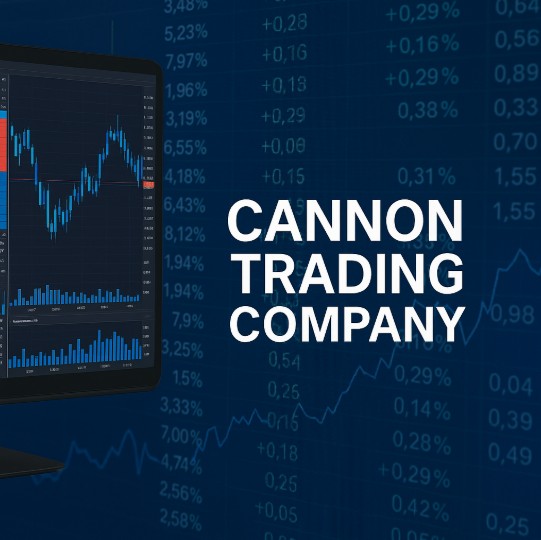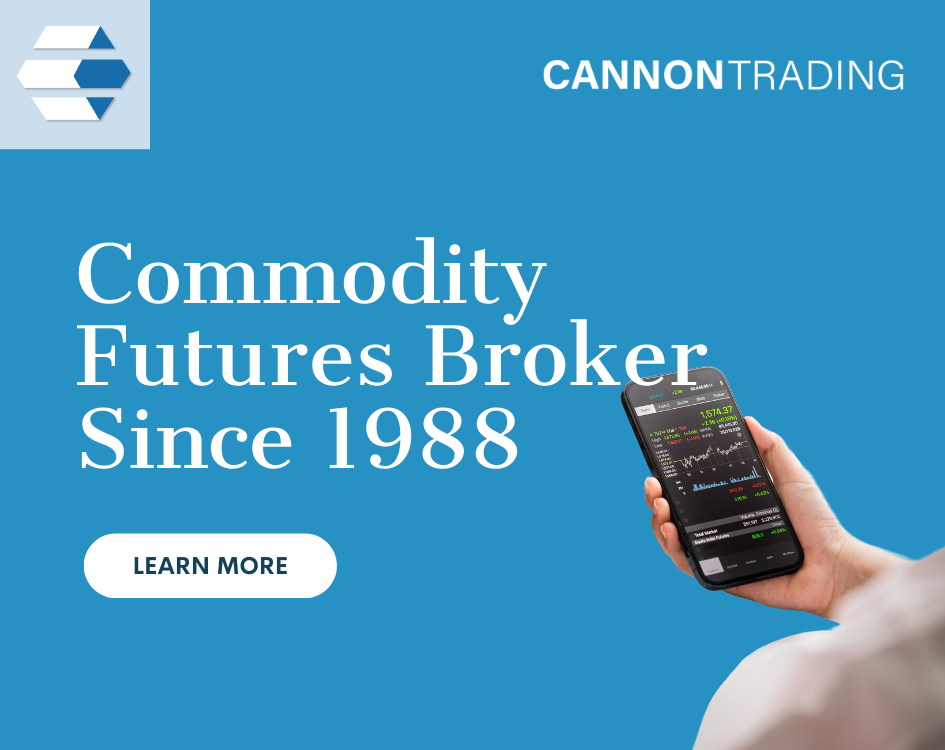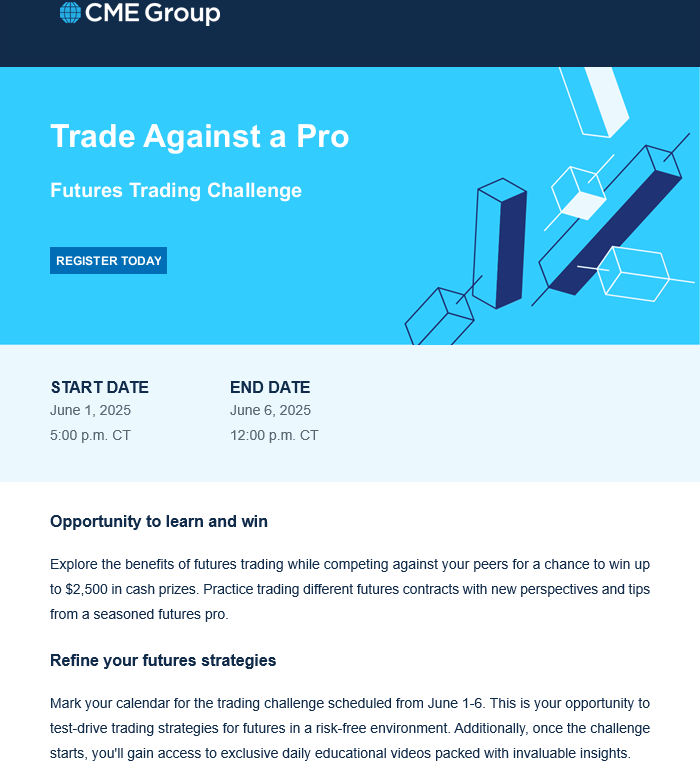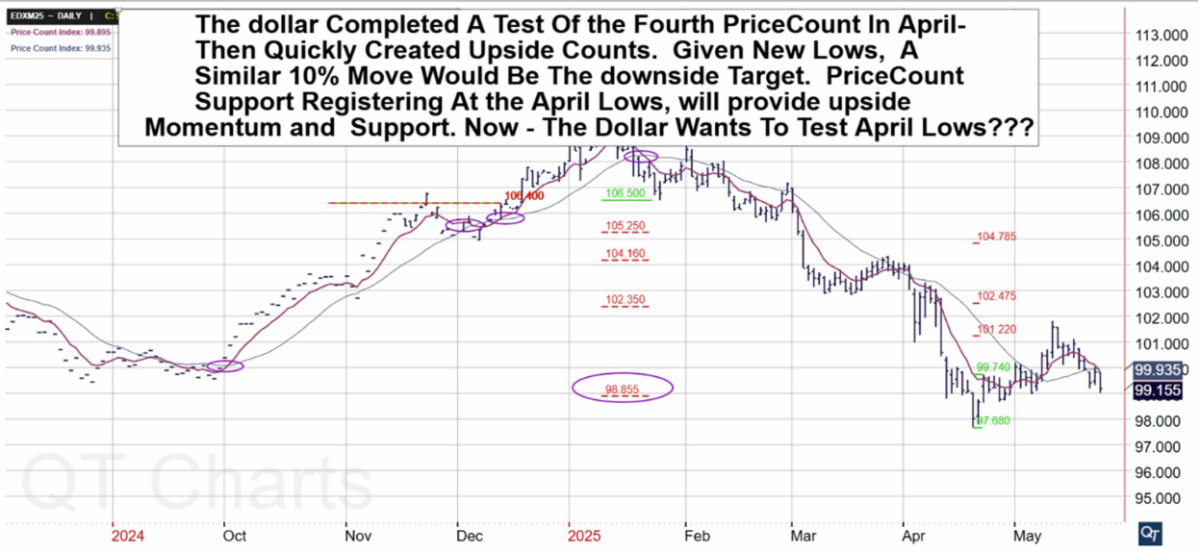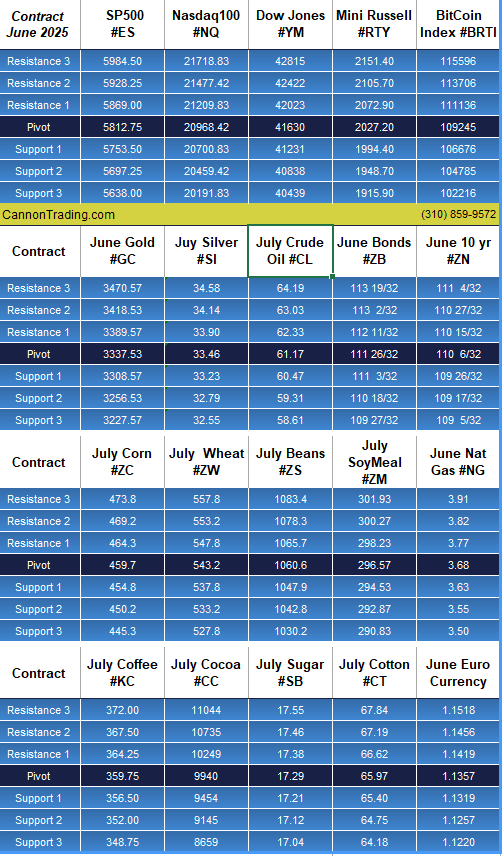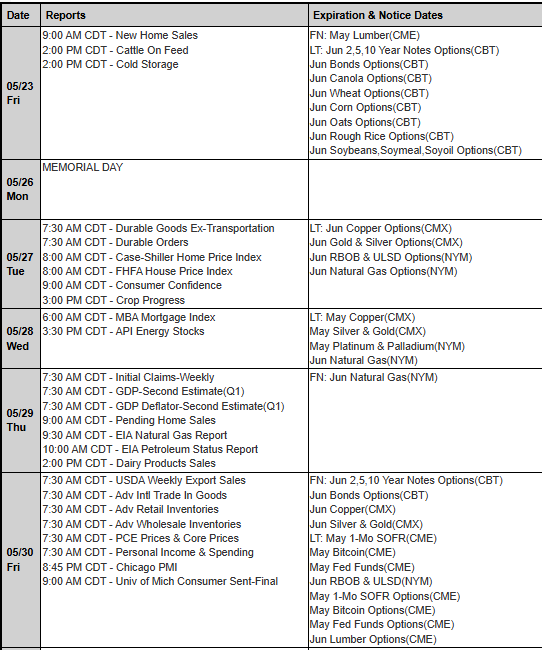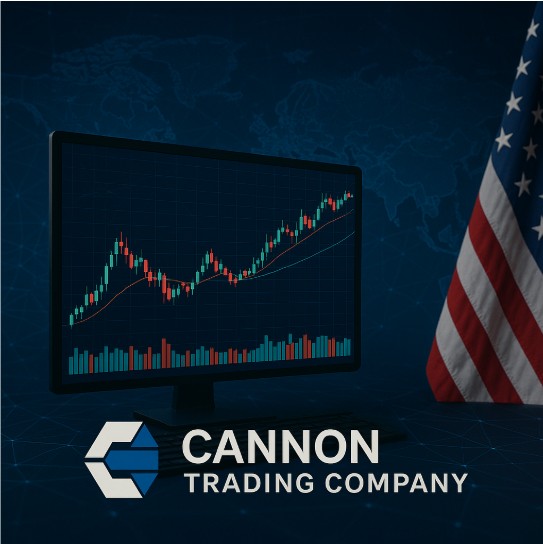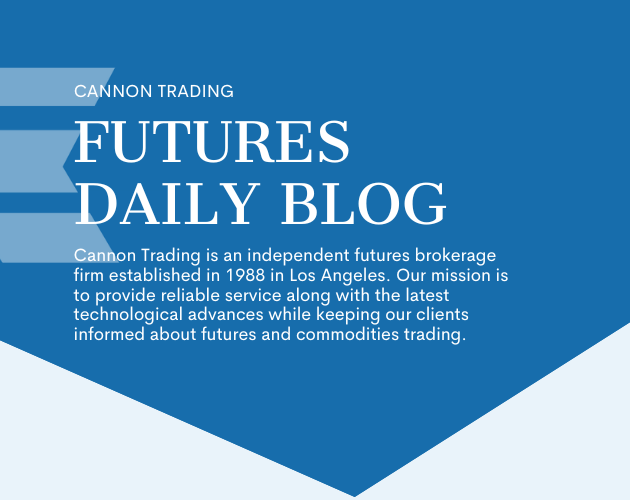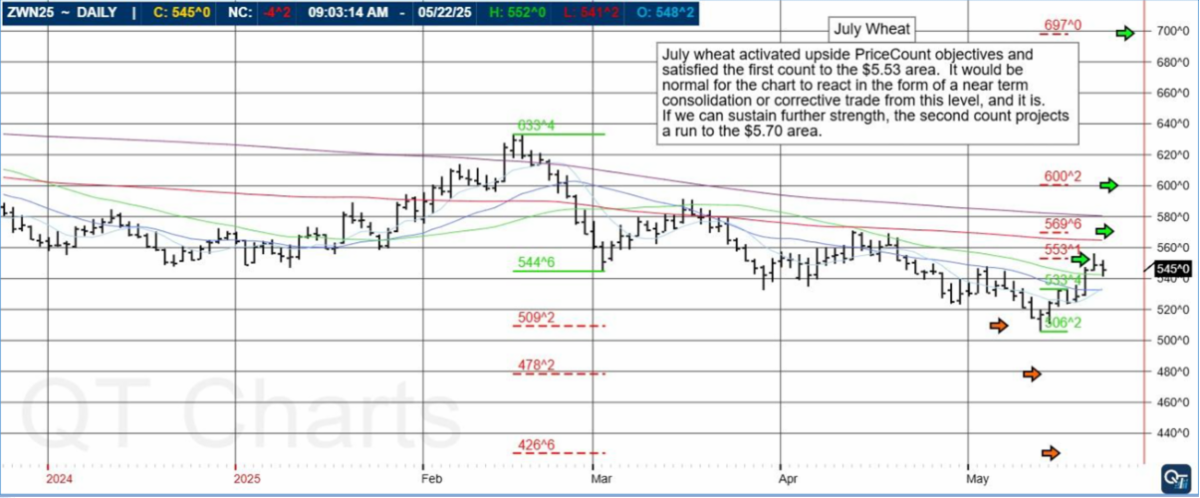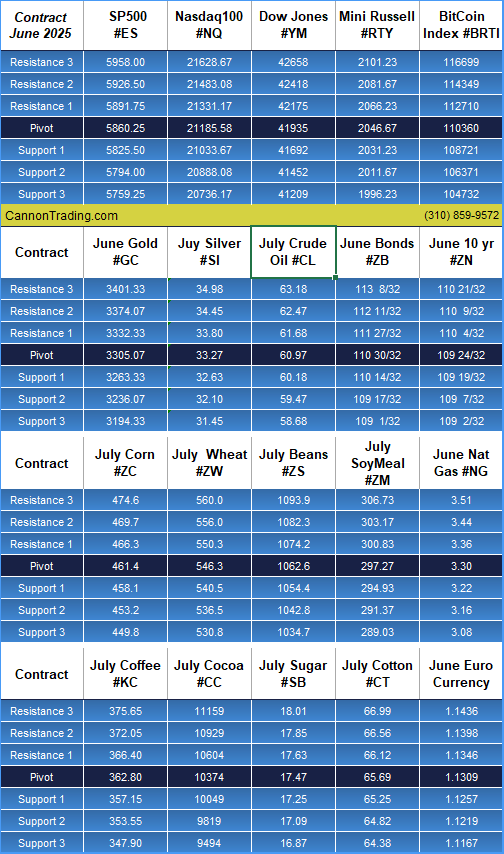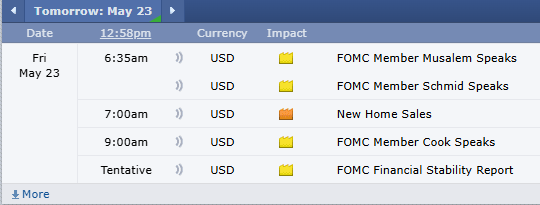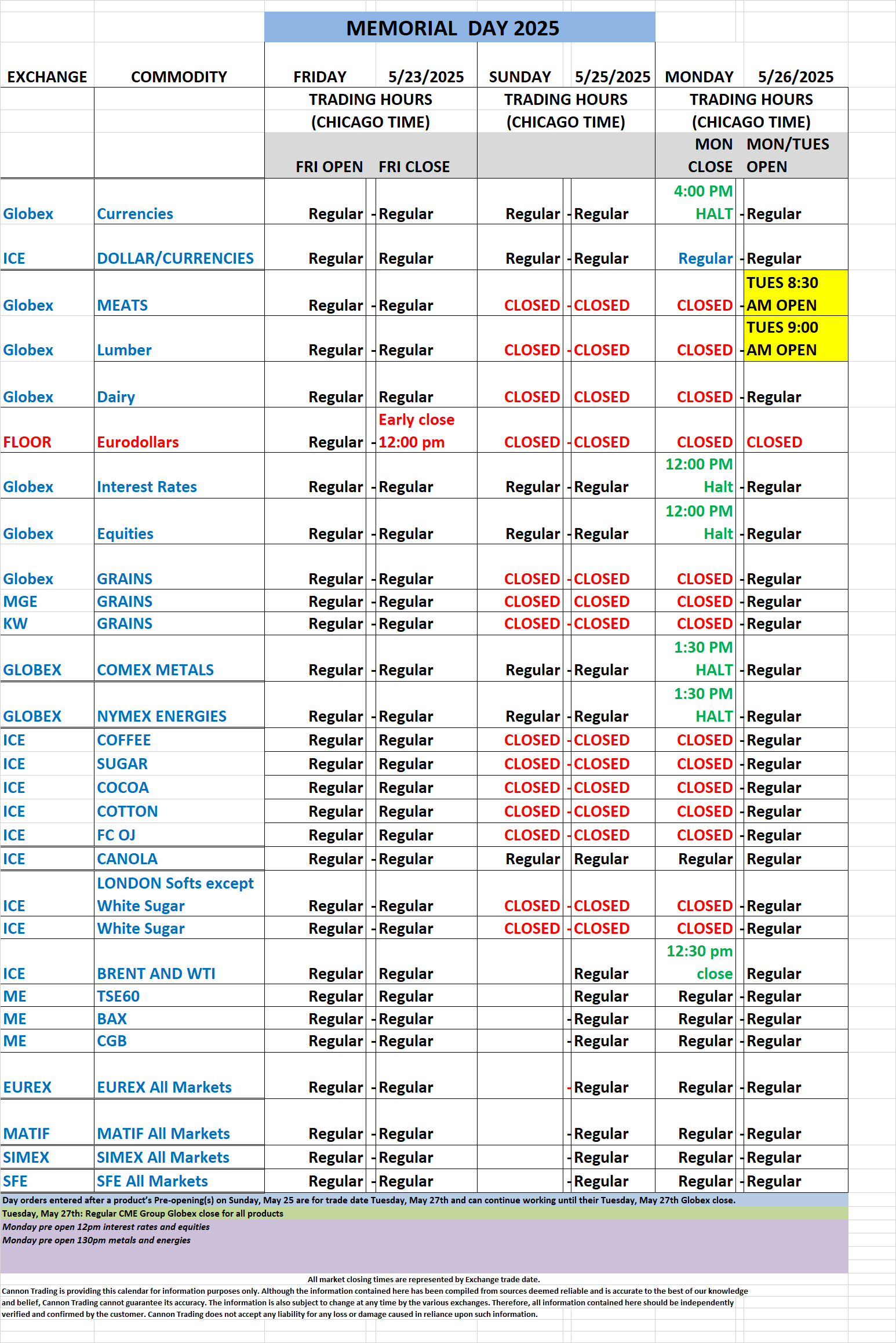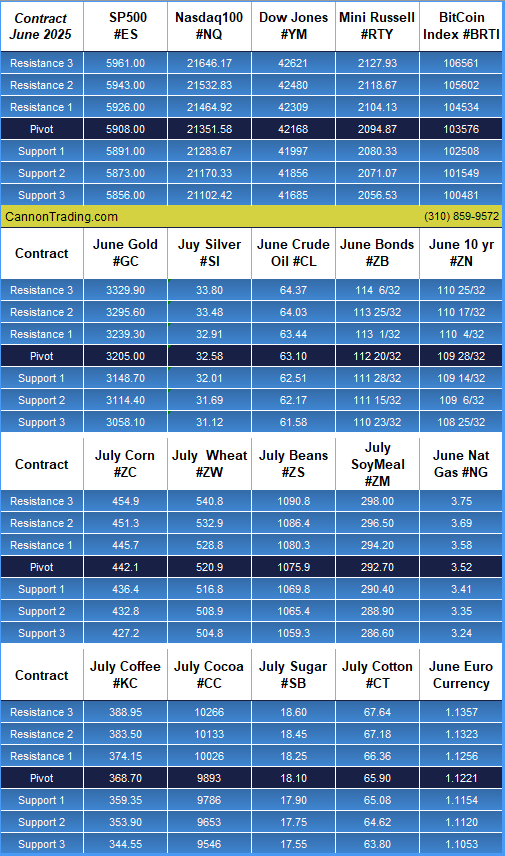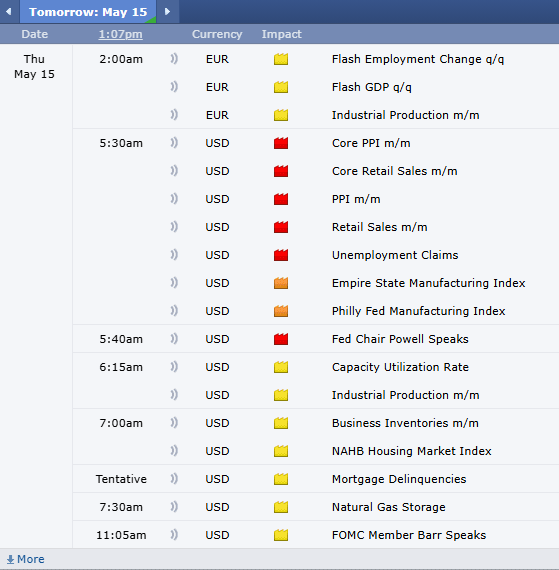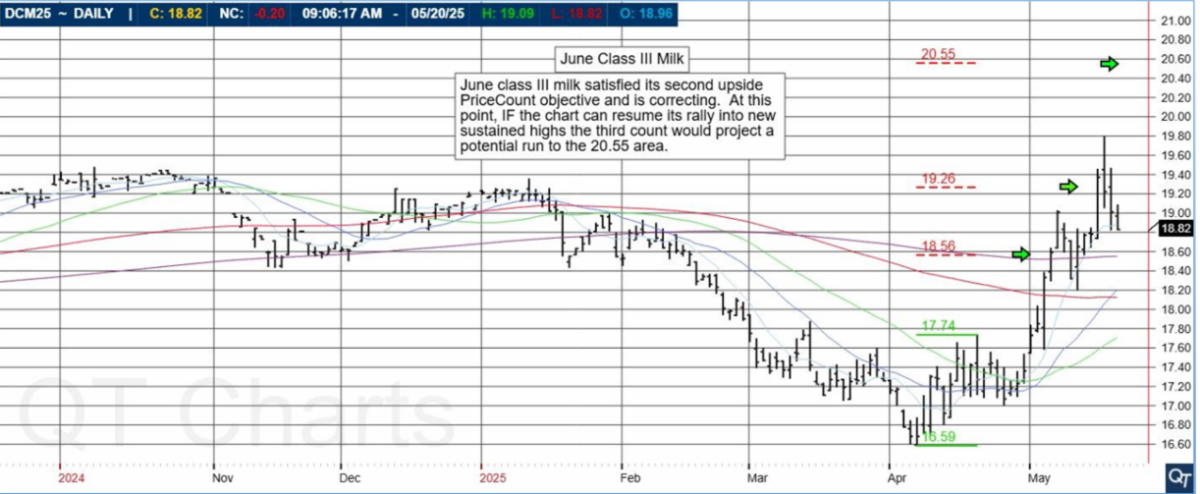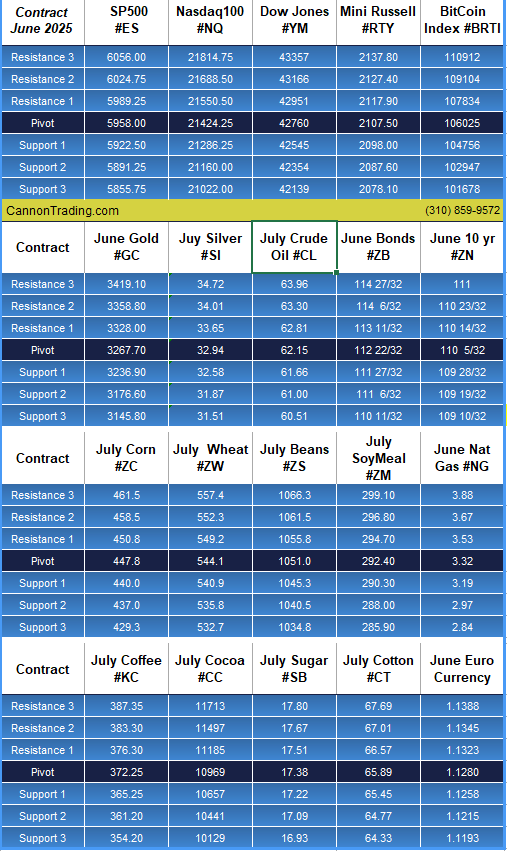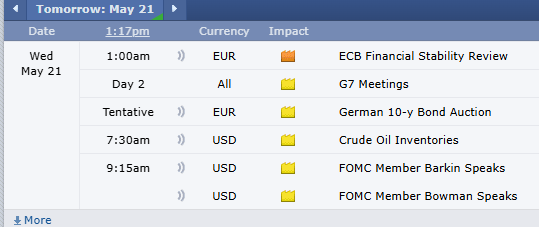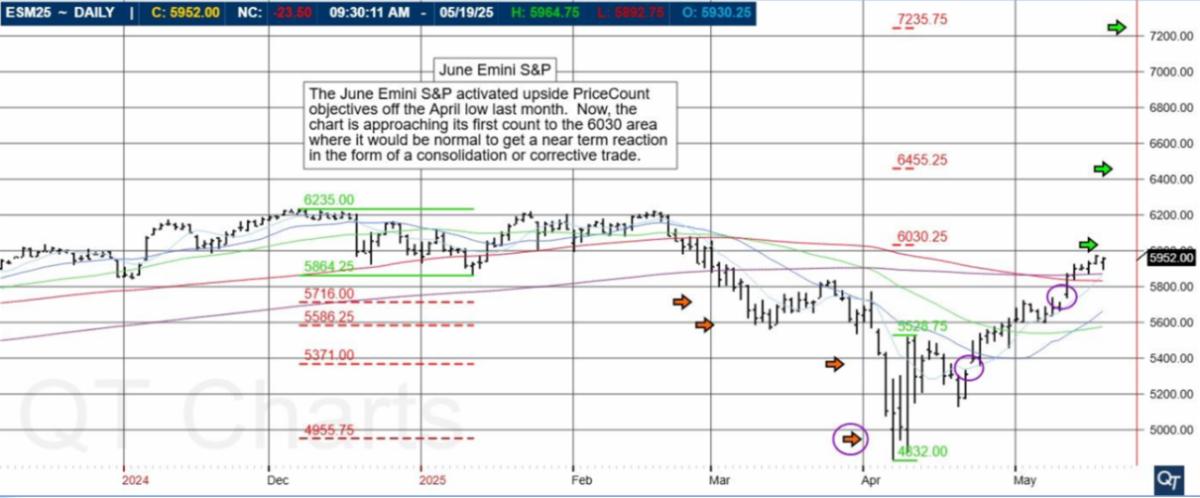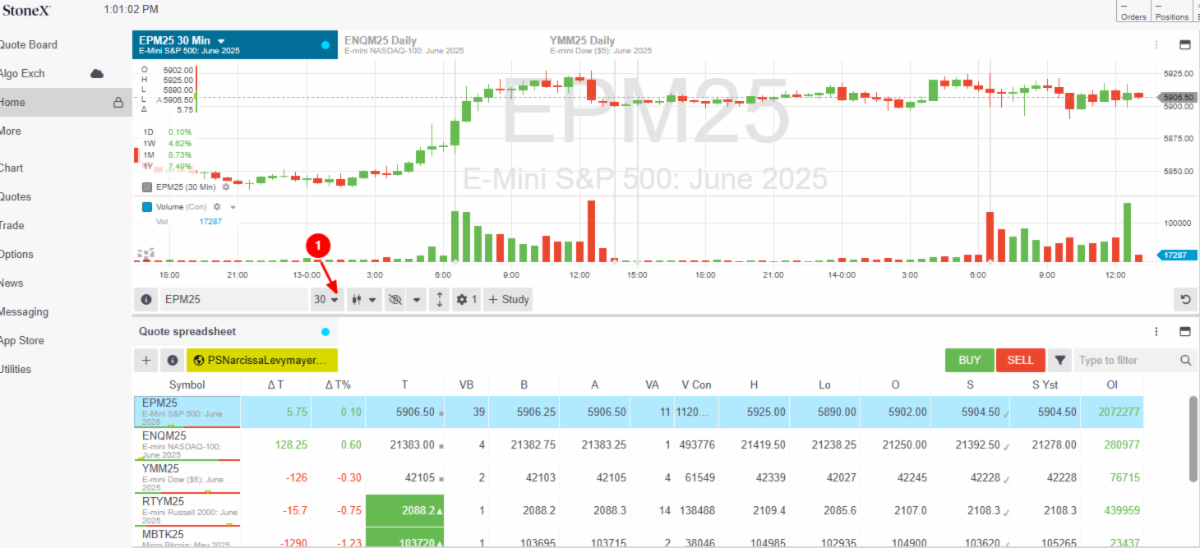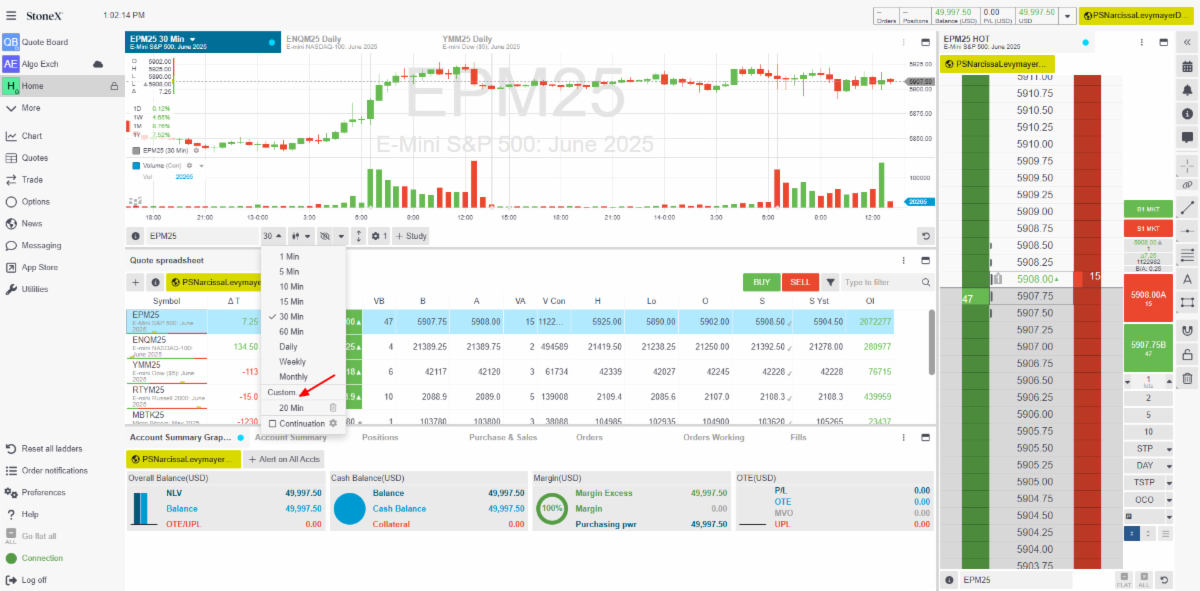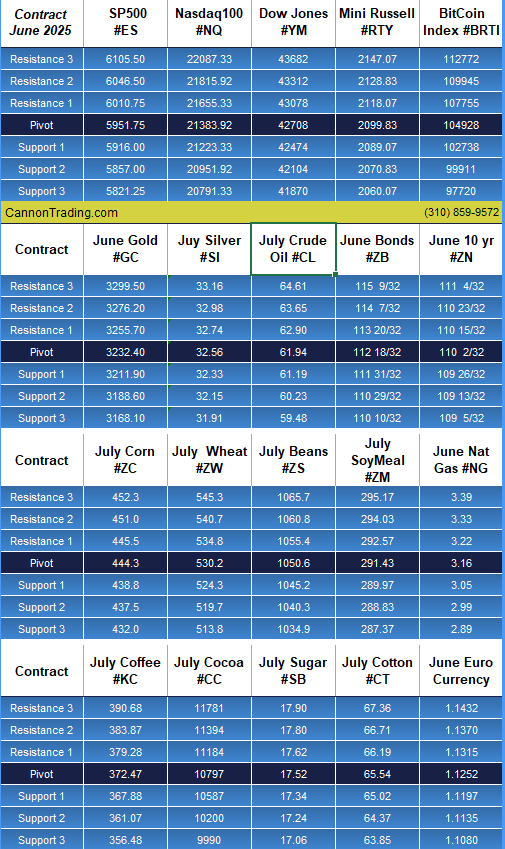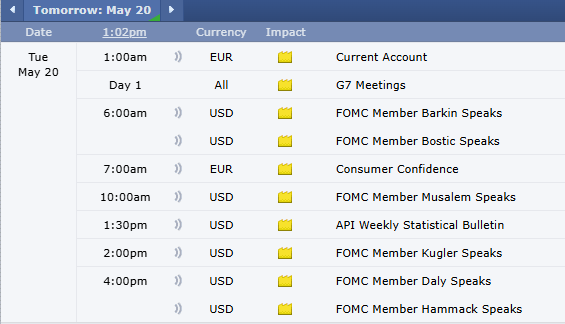Futures trading has a rich history that spans continents and centuries, and at the heart of this history is the futures broker. From the early days of open-outcry trading pits to today’s multi-screen electronic trading terminals, futures brokers have continually adapted to new technologies, evolving regulations, and shifting client needs. What began as a niche service for commodity merchants and farmers has grown into a global industry connecting traders to futures markets around the clock. In this paper, we explore the evolution of the future broker from its historical roots to its modern form, incorporating both U.S. and global perspectives. We examine how technology, regulation, services, and client relationships changed the brokerage landscape for futures trading, and we highlight how one firm – Cannon Trading Company – exemplifies this evolution. In a journalistic yet promotional lens, we will see why today’s environment demands the best futures broker to combine cutting-edge platforms, robust compliance, and exemplary customer service in facilitating trading futures.
Historical Roots of Futures Brokers
The concept of futures contracts – agreements to buy or sell a commodity at a set date in the future – has been around for centuries. In fact, the first organized futures exchange is traced back to Japan’s Dojima Rice Exchange, established in 1730 for trading rice futures. Such early markets set the stage globally, demonstrating the value of standardized forward contracts. By the 19th century, futures trading took root in the West. The United States opened its first official commodity exchange in 1848 with the founding of the Chicago Board of Trade (CBOT), where futures brokers matched sellers (often farmers with crops) and buyers (millers, merchants) in contracts for corn, wheat, and other staples. These futures trading intermediaries provided a vital service: they brought liquidity and trust to markets that helped producers hedge against price swings and consumers secure supplies.
In those early days, a futures broker typically operated on the exchange floor. Communication was loud and chaotic – a method known as open outcry where brokers would shout bids and offers and use hand signals in a trading pit. The trading floor (often simply called “the pit”) was the domain of the futures broker for well over a century. It was a physical arena where only those present – members of the exchange and their brokerage representatives – could participate in trading futures contracts. This system had its advantages: brokers on the floor could gauge market sentiment by reading the crowd’s energy and the urgency in others’ voices or gestures. However, it was also limited to those physically present and could be prone to errors or miscommunications in the heat of the moment.
Globally, similar patterns emerged. In London, for example, commodity exchanges developed by the 19th century, with the London Metal Exchange (LME) forming in 1877 to trade metals. The open-outcry tradition was not unique to the U.S. – the “Ring” of the LME, the pits of exchanges in Chicago and New York, and other trading halls in Frankfurt, Tokyo, and Sydney all relied on human brokers to facilitate trades. Futures brokers in these venues were essential intermediaries, arranging deals for clients across oceans and telegraph wires long before the internet. In the early 20th century, as futures markets expanded beyond agriculture into other commodities (like metals and later financial instruments), the role of futures brokers became even more prominent. They were experts not only in executing trades but also in networking – knowing whom to call to find a buyer or seller, and understanding supply and demand dynamics in the underlying markets.
Regulatory Milestones and Their Impact
As futures markets grew, so did the need for oversight. The sometimes volatile and speculative nature of futures trading led to episodes of market manipulation and the notorious “bucket shops” in the early 1900s that gave legitimate futures brokers a bad name. In response, the U.S. government began to enact regulation to protect market integrity and participants. A landmark moment came with the Commodity Exchange Act of 1936, which built on earlier legislation to firmly establish federal oversight of U.S. commodity futures markets. Later, in 1974, amid rising trading volumes and new financial futures products, the U.S. Congress created the Commodity Futures Trading Commission (CFTC) as an independent regulator. This move professionalized the industry; every futures broker now had to register and comply with strict rules aimed at promoting fair, efficient markets and safeguarding customers from fraud and abuse. Notably, the same legislation in 1974 authorized the futures industry to create a self-regulatory organization. This led to the formation of the National Futures Association (NFA), which began operations in 1982, introducing a new layer of accountability for U.S. futures brokers through audits, enforcement of ethical standards, and mandatory licensing exams.
These regulatory milestones transformed how futures brokers operated. Brokers were now required to segregate client funds, maintain adequate capital, report transactions, and adhere to codes of conduct. The era of the freewheeling, handshake-based future broker was over; in its place emerged the highly regulated futures commission merchant and introducing broker model. In practice, this meant greater safety for clients – no more worries that a broker might abscond with funds or that trades wouldn’t be honored. It also meant brokers had to invest in compliance departments and legal oversight, changing the nature of the business. Many embraced this as a positive evolution, knowing that a well-regulated market boosts public confidence. For example, Cannon Trading Company, founded in 1988, came of age in this environment and from the outset aligned itself with top-tier compliance. As a member of the NFA and a firm registered with the CFTC since its inception, Cannon has consistently been held to the highest regulatory standards. This exemplary track record with regulators – no significant infractions over decades of operation – underscores how seriously the company and its peers treat compliance in the modern era. Indeed, Cannon’s exemplary reputation with regulatory bodies is frequently noted as one of its defining strengths. In an industry where a single regulatory misstep can tarnish a firm’s reputation, Cannon Trading’s clean record and cooperative stance with regulators stand out.
Regulatory evolution has not been limited to the United States. Around the world, countries developed their own oversight structures for futures markets: the U.K. eventually folded futures oversight into its Financial Conduct Authority (after earlier bodies in the 1980s), while Japan’s regulators supervise the Tokyo Commodity Exchange and others. International standards have gradually converged, with many jurisdictions emphasizing customer protections, broker transparency in pricing, and prevention of market manipulation. This global regulatory fabric means that a future broker today, whether operating in Chicago or Singapore, must place compliance and ethics at the core of their business model. The best futures broker in any region is often distinguished not just by profits, but by an exemplary reputation for integrity and adherence to the rules – a reputation that Cannon Trading has exemplified through decades of clean audits and proactive compliance measures.
Technological Evolution: From Pits to Platforms
Perhaps the most dramatic change in the world of futures trading over the past half-century has been the rise of electronic trading technology. For most of the 20th century, the open-outcry method reigned. But by the late 1980s and early 1990s, electronic trading systems began to emerge, promising greater speed and wider access. A pivotal moment came in 1992 when the Chicago Mercantile Exchange introduced its Globex electronic trading platform. Initially used alongside the live pits (often after-hours), Globex and similar systems demonstrated that futures could be traded by clicking a mouse rather than shouting in a pit. Traders gradually warmed to these new systems for their speed and efficiency. By entering orders on a computer, a trader could get near-instant confirmation, and a futures broker could service clients across the globe without needing a physical presence on the exchange floo.
The shift from floor to screen was not instantaneous – through the 1990s, many veteran brokers straddled both worlds, placing orders electronically while still gauging the pit’s mood. However, as technology improved, the advantages of electronic trading became undeniable. Orders that once took minutes (a phone call to a broker, who yells it to a pit clerk, who relays it to a floor broker) could now be executed in milliseconds. Moreover, electronic platforms leveled the playing field by offering the same real-time market data and depth of market display to any trader with a computer, something that previously only floor insiders might fully sense. This democratization of information was a game-changer. It allowed trading futures to expand beyond the traditional hubs; a trader in a small town or overseas could participate in the Chicago or London markets with the same immediacy as a trader physically present at the exchange.
By the early 2000s, most major futures exchanges had introduced electronic trading for all or most contracts, and many began phasing out their pits. Today’s futures markets are almost entirely screen-based; as Investopedia succinctly notes, “today’s futures markets are global and fully electronic.”. For futures brokers, this meant reinventing their services. No longer was it sufficient to have a strong set of lungs and sharp elbows on the trading floor. Now a broker needed to offer clients robust futures trading software, reliable network connectivity, and technical support. The brokerage business model shifted from physically executing orders to providing electronic market access and value-added services around it.
Cannon Trading Company serves as an illustrative case of a brokerage that successfully navigated this technological revolution. In the late 1990s, as the Internet began reshaping the financial industry, Cannon Trading embraced online futures trading early. It was a pioneering move at a time when many established brokers were hesitant to change their floor-based, phone-driven operations. Cannon integrated sophisticated online trading platforms for its clients, providing them with direct market access, real-time data, and advanced charting tools that were once available only to institutional traders on Wall Street or in Chicago pits. This forward-thinking step positioned Cannon at the forefront of the industry’s digital transformation. By pioneering online trading when it was still in its infancy, Cannon set a standard among futures brokers – demonstrating that embracing technology could enhance, not diminish, the broker’s role.
Today, the toolkit of a futures broker looks very different than it did decades ago. Brokers offer multiple electronic platforms to cater to different trading styles and needs. For instance, Cannon Trading Company provides a wide selection of trading platforms – including industry-leading software like NinjaTrader, TradingView, Sierra Chart, CQG, and MultiCharts – to ensure that whether a client is a day trader needing low-latency execution or a strategist needing deep analysis and backtesting, they have the right tools. This breadth of platform choice is a direct response to technological evolution: no single interface fits all traders, so the best futures broker now often differentiates itself by supporting an array of technologies. The modern future broker must also invest in cybersecurity and system stability. With trades happening 24/6 (futures markets run nearly around the clock during weekdays), brokers maintain IT infrastructure that can securely handle large volumes of trades from clients worldwide without downtime. Cannon, for example, continuously updates and expands its offerings as trading technology evolves, ensuring its clients have access to the best futures trading experience possible – a trait that has kept many of its customers loyal through the decades of tech change.
Changing Services and Client Relationships
Hand-in-hand with technology and regulation, the services offered by futures brokers and their relationships with clients have significantly evolved. Historically, many futures brokers functioned as order-takers for large commercial clients. A mid-20th-century broker might have spent his day on the phone with grain elevators, food companies, or floor traders, executing instructions and maybe providing the occasional market tip gleaned from the trading floor buzz. Personal relationships were paramount; trust was built over long lunches and frequent calls. If you were a farmer or a corporate hedger, your futures broker was not just a trade executor but often a confidant and advisor who understood your business needs.
As futures trading broadened to include financial investors and, eventually, retail traders in the late 20th century, the client base diversified. By the 2000s, a college student with a few thousand dollars could open an online futures account – a client profile unheard of in earlier decades. This democratization meant that futures brokers had to cater to a wide range of knowledge levels and expectations. Education and customer support became central services. The best futures brokers began offering webinars, trading tutorials, daily market research, and one-on-one consultations. A broker’s value was no longer just in executing a trade cheaply; it was in enhancing the client’s trading experience and success rate.
Moreover, competition among brokers intensified, putting downward pressure on commission fees and raising the bar for service quality. In the U.S., brokers had to differentiate either through superior technology, lower costs, or premium service (or all of the above). Many traditional “full-service” brokers that charged high commissions for personalized advice found themselves disrupted by nimble futures brokers who offered discount commissions alongside free research tools and responsive support. This evolution benefited traders: today even a self-directed retail trader expects prompt, professional customer support and transparency in all dealings.
Cannon Trading Company provides a prime example of excellence in client service in the modern era. With over 35 years in the industry, Cannon has cultivated a client-centric approach that is frequently praised in public reviews. The firm boasts numerous 5 out of 5-star ratings on TrustPilot, a testament to its high customer satisfaction. In fact, Cannon’s TrustPilot reviews often highlight the firm’s exceptional personalized service – clients note the quick and efficient responses from brokers that make every interaction feel personal, and applaud the professionalism and friendliness of the staff. Unlike some large brokers where customers struggle to reach a knowledgeable human being, Cannon ensures that every client can speak to an experienced, Series-3 licensed broker when they call. This level of attention is invaluable, especially in trading futures where market conditions can change in an instant and having a reliable broker on the line can make all the difference.
The range of services that a modern futures broker like Cannon offers goes well beyond trade execution. Cannon provides educational resources for beginners (acknowledging that many new traders enter the futures markets each year), market analysis for seasoned traders, and even supports more complex needs such as automated trading systems and access to managed futures programs. The firm’s adaptability is also evident in how it bridges service models: it capably serves full-service clients who want broker guidance and input, while also catering to discount clients who simply need an efficient platform and low commissions. Cannon’s ability to do both under one roof speaks to how futures brokers have evolved to become multi-faceted service providers. They must wear many hats – tech support, educator, risk manager, and sometimes even coach or psychologist during volatile markets – to build strong, long-term client relationships.
Finally, an important aspect of modern broker-client relationships is transparency. With information ubiquitous, traders demand to know all the costs and risks upfront. Hidden fees or murky margin policies are not tolerated. The best futures brokers openly publish their commission rates and margins and keep clients informed of any changes. Cannon Trading, for example, prides itself on competitive commissions and transparent pricing, ensuring traders know exactly what they pay for. This transparency fosters trust, which in turn strengthens the client relationship. In the long run, the evolution of the future broker has been towards a partnership model – brokers and clients working together to navigate the markets, rather than the old transactional model. Cannon’s decades-long client retention and glowing testimonials suggest that this partnership approach, built on service, trust, and mutual respect, is a winning formula in the modern era of futures trading.
Global Expansion and International Perspectives
While the evolution of futures brokers in the United States is a compelling story, it is important to recognize that similar transformations have occurred worldwide, sometimes in parallel and sometimes in unique local ways. In the latter half of the 20th century, futures markets expanded rapidly across Europe and Asia, introducing new exchanges and brokers to cater to region-specific needs. For instance, Europe saw the rise of the London International Financial Futures Exchange (LIFFE) in the 1980s and Germany’s Deutsche Terminbörse (DTB) in 1990 – the latter launching as an all-electronic exchange from the start. These developments meant that a futures broker in London or Frankfurt had to adapt to electronic trading even earlier in some cases than their American counterparts. In Asia, exchanges like the Tokyo Commodity Exchange and the Singapore Exchange (which launched SIMEX in 1984, one of the first Asian financial futures markets) created a demand for skilled futures brokers fluent in local market dynamics and global trends.
One notable aspect of globalization is that it broke down barriers for investors. A trader sitting in London could just as easily trade Chicago grain futures or Tokyo Nikkei index futures, provided their broker had access. This led to many brokers forming international partnerships or using omnibus clearing arrangements to offer clients a menu of global markets. Today, leading futures brokers position themselves as gateways to the world. It’s not unusual for a client of a U.S. broker like Cannon Trading Company to be trading crude oil futures on a New York exchange one moment, and the FTSE 100 index futures on a London exchange the next. This global reach requires brokers to understand and comply with multiple regulatory regimes and exchange rules, and to operate nearly 24 hours a day to service clients across time zones.
Cannon Trading has leveraged its strong reputation and technology to attract a worldwide clientele. The company proudly serves traders from various countries, reflecting the universal appeal of its brokerage services. Reviews and feedback indicate that international clients value Cannon’s reliable trade infrastructure and English-language support in navigating U.S. futures markets (which remain among the deepest and most liquid in the world). In turn, Cannon’s brokers stay abreast of global market news – whether it’s an overnight policy change by the European Central Bank or a sudden movement in Asian markets – because such events can influence all traders. In essence, the future broker in today’s context must be globally aware and equipped. The evolution here is from being a domestic intermediary to being a global facilitator of trading futures.
The global perspective also highlights different paces of change. Some exchanges, like those in emerging markets, clung to floor trading longer or only recently underwent electronic transition, meaning brokers in those locales experienced a compressed, intense period of change. Others had regulatory evolutions at different times (for example, China’s futures markets only took off in the 1990s and 2000s under state oversight). Yet, despite these differences, a common trend emerges: technology and transparency uplifted brokerage standards everywhere. Whether a client walks into a brokerage office in Chicago, Mumbai, or London today, they expect a modern trading platform, adherence to strong regulations, and excellent service. The phrase best futures broker has a global connotation now – it implies a firm that can compete on an international stage, offering top-notch service and access. Cannon Trading’s decades of experience and adaptation have allowed it to be part of that elite group, recognized not just in the U.S. but by traders worldwide who seek out a stable, reputable partner for their futures trading endeavors.
Cannon Trading Company: A Case Study in Evolution
Throughout this paper, Cannon Trading Company has been cited as an example of a brokerage that personifies the industry’s evolution. Indeed, Cannon’s journey from a small Los Angeles-based futures brokerage in 1988 to a globally recognized firm today mirrors many of the broader changes in the sector – and in some cases, Cannon was ahead of the curve. It was founded at a time when the industry was on the cusp of seismic shifts. Over the ensuing decades, Cannon not only weathered those changes but leveraged them to build a stronger enterprise, all while maintaining the core principles that define the best futures brokers: integrity, customer service, and innovation.


From a historical standpoint, Cannon Trading started when open-outcry was still king. New brokers in the late 1980s needed to establish credibility and relationships in a somewhat clubby industry. Cannon did so by emphasizing client respect and transparency from day one. While some competitors might have cut corners or chased quick profits during the wild swings of commodity markets in the 1980s and 90s, Cannon took a longer view, prioritizing its reputation and client trust. This approach paid off as the firm steadily grew its client base. By the time electronic trading rose to prominence, Cannon had already built a legacy of excellence and was well-positioned to invest in new technologies that would serve its clients’ interests.
One of the defining moments for Cannon was its early adoption of online trading in the 1990s. Recognizing that the future of the futures brokerage business would be digital, Cannon committed resources to develop its online presence and technical capabilities. It was even featured as the subject of the first “online brokers review” by Futures Magazine in those early days of internet trading – a clear acknowledgment that Cannon was among the pioneers pushing the envelope. This forward-thinking stance won Cannon a loyal following of tech-savvy traders and earned it accolades, such as a Readers’ Choice Award from Trader Planet in later years. By embracing change rather than resisting it, Cannon helped shape what a modern future broker should be.
Cannon’s strengths today reflect both its rich history and its adaptability. The firm boasts decades of experience in futures markets, which gives clients confidence that they are dealing with seasoned professionals who have seen all types of market conditions. This experience is not just about longevity; it translates into practical market wisdom that brokers at Cannon impart to clients, whether it’s guidance on managing risk during a sudden price spike or insights into historical trends. Moreover, Cannon’s commitment to compliance – being in good standing with regulators like NFA and CFTC for nearly four decades – means clients can trade with peace of mind, knowing their broker operates with the highest integrity and oversight. In an era when a few high-profile futures broker failures (due to misconduct at those firms) made headlines, Cannon’s spotless record shines. The company’s exemplary reputation with regulators isn’t merely a plaque on the wall; it’s a day-to-day operational philosophy.
On the technology and service front, Cannon Trading truly exemplifies the modern futures broker. The wide selection of trading platforms it offers ensures that clients have choice – a novice might opt for a simple, user-friendly interface, while a veteran might use a professional-grade platform with advanced charting. Cannon’s brokers are well-versed in all these platforms, guiding users to the one that best fits their strategy. This is a far cry from the one-size-fits-all approach of decades past. Additionally, Cannon pairs technology with a human touch. Its customer service is frequently lauded as among the best in the industry; the firm’s numerous 5-star TrustPilot reviews attest that traders feel “heard” and supported by their Cannon brokers at every step. Whether it’s a question about a margin call in the middle of the night or help with setting up an automated strategy, Cannon’s team provides prompt, personalized assistance. This blend of cutting-edge technology with old-fashioned customer care is perhaps the ultimate hallmark of a best futures broker in today’s landscape.
In promotional terms, it’s fair to say Cannon Trading Company has not only kept pace with the evolution of the futures brokerage industry – it has often led the way. With its strong foundation, Cannon continues to innovate (recently exploring integration of AI tools for trading and expanding educational content) to remain a futures broker of choice for the next generation of traders. Few firms can claim a legacy dating back to the late 1980s and still be on the forefront of industry developments. Cannon’s story thus serves as both inspiration and blueprint: it shows that adapting to change, while holding onto core values of customer service and compliance, is the key to longevity in the world of futures trading.
The evolution of futures brokers from the open-outcry era to the modern digital age is a testament to the financial industry’s capacity for innovation and adaptation. Historically rooted in facilitating trades for agricultural and industrial markets, the future broker has transformed into a high-tech service provider operating in a fast-paced, global marketplace. This research journey has highlighted how technological breakthroughs, from telephones to internet trading platforms, revolutionized the way brokers connect clients to markets. We have seen how regulatory frameworks tightened to make futures trading safer and more transparent, raising the standards for all futures brokers. Services expanded from basic trade execution to a holistic offering encompassing education, strategy support, and personalized client care, reflecting a deeper, more enduring broker-client relationship model.
From a global perspective, the once U.S.-centric concept of the futures broker has spread and standardized across continents, so that excellence in brokerage is recognized and expected worldwide. And within this narrative, Cannon Trading Company stands out as a compelling example of a brokerage that not only navigated every phase of this evolution but helped shape it. With decades of experience, a forward-looking embrace of technology, unwavering regulatory compliance, and top-rated customer service, Cannon embodies many qualities of the best futures broker in the industry. It has successfully bridged the old and the new – from the traditions of the trading pit to the innovations of algorithmic futures trading – all while maintaining the trust of its clients and peers.
As we conclude, it’s evident that the role of a futures broker will continue to evolve. The future likely holds even more advanced trading algorithms, perhaps AI-driven market analysis, and an increasingly global pool of traders. Yet, the core principles that have guided the evolution thus far will remain crucial. Technology must be balanced with a human touch, innovation must go hand-in-hand with integrity, and brokers must always champion their clients’ best interests. The story of futures brokers is ultimately about enabling traders to participate in markets effectively and confidently. In that regard, modern brokers like Cannon Trading Company are not just survivors of change – they are leaders setting the pace for what comes next in trading futures.
For more information, click here.
Ready to start trading futures? Call us at 1(800)454-9572 (US) or (310)859-9572 (International), or email info@cannontrading.com to speak with one of our experienced, Series-3 licensed futures brokers and begin your futures trading journey with Cannon Trading Company today.
Disclaimer: Trading Futures, Options on Futures, and retail off-exchange foreign currency transactions involve substantial risk of loss and are not suitable for all investors. Past performance is not indicative of future results. Carefully consider if trading is suitable for you in light of your circumstances, knowledge, and financial resources. You may lose all or more of your initial investment. Opinions, market data, and recommendations are subject to change at any time.
Important: Trading commodity futures and options involves a substantial risk of loss. The recommendations contained in this article are opinions only and do not guarantee any profits. This article is for educational purposes. Past performances are not necessarily indicative of future results.
This article has been generated with the help of AI Technology and modified for accuracy and compliance.
Follow us on all socials: @cannontrading


